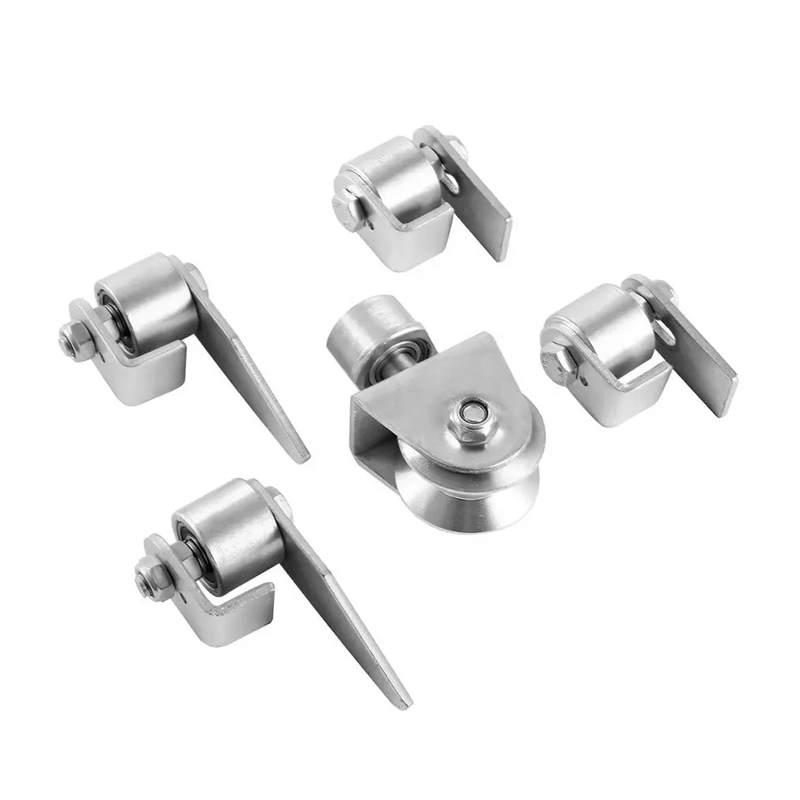No. 200 Gaoxin RD, Shanghua St, Lanxi, Zhejiang, P. R China
The Sliding Doors Steel Rack Pinion Gear is a critical component in va...
See DetailsBathroom sliding door wheels are essential components that significantly influence the usability, durability, and overall performance of sliding door systems in residential and commercial bathrooms. Their advantages lie not only in their mechanical functionality but also in how they contribute to efficient use of space, improved hygiene, and enhanced user experience.

One of the notable benefits of bathroom sliding door wheels is space optimization. Unlike traditional hinged doors, sliding doors fitted with wheels operate along a linear track, requiring no additional clearance for opening or closing. This makes them particularly suitable for compact bathroom layouts, where efficient use of available space is critical.
Smooth and quiet operation is another major advantage. High-quality bathroom sliding door wheels are typically equipped with ball bearings or nylon coatings, which ensure frictionless motion and reduce noise. This feature is especially appreciated in settings like hotels, modern homes, and healthcare facilities, where quiet operation contributes to a more pleasant environment.
Durability and corrosion resistance are also key considerations. Since bathrooms are moisture-prone areas, the wheels are often made from rust-resistant materials such as stainless steel or coated aluminum. These materials ensure long-term reliability and maintain smooth movement even under frequent exposure to humidity.
Support wheels for heavy gates play a crucial role in ensuring smooth operation and structural integrity in sliding and swinging gate systems. These wheels are specifically designed to bear and distribute the substantial weight of large gates, particularly those made from steel, iron, or reinforced wood, which can otherwise place undue stress on hinges, motors, and structural components.
One of the primary functions of support wheels is to reduce the load on the gate's hanging mechanisms. By taking on part of the gate's weight, these wheels help prevent sagging and misalignment, which are common issues in heavy gate installations. This not only improves the visual alignment and functionality of the gate but also reduces wear and tear on other components.
Support wheels are often manufactured from robust materials such as solid rubber, polyurethane, or steel, with brackets made of galvanized or stainless steel to withstand outdoor conditions. Their construction is intended to handle uneven terrain, resist corrosion, and provide long-term performance in both residential and industrial applications.
Sliding barn door wheels are a key element in the growing popularity of barn-style doors in both residential and commercial interior design. These wheels not only enable the practical functionality of sliding doors but also serve as a visible hardware element that contributes to the overall aesthetic. Their design, material, and performance characteristics help strike a balance between form and function.
One of the appreciated features of sliding barn door wheels is their visual appeal. Typically mounted on the outside of the door, these wheels are part of an exposed track system that adds a rustic or industrial character to interior spaces. Made from materials like powder-coated steel or blackened iron, they often serve as a decorative focal point while still fulfilling a critical mechanical role.
Functionally, sliding barn door wheels facilitate smooth and stable movement along a wall-mounted track. Their design typically includes ball bearings or grooved tracks that reduce friction and noise during operation. This allows doors to open and close effortlessly, even with larger wooden panels often used in barn-style doors.
In addition to aesthetics and ease of use, these wheels contribute to space efficiency. Like other sliding doors, barn-style installations do not require floor space to swing open, making them ideal for areas where space is limited, such as small apartments or tight hallway entries.